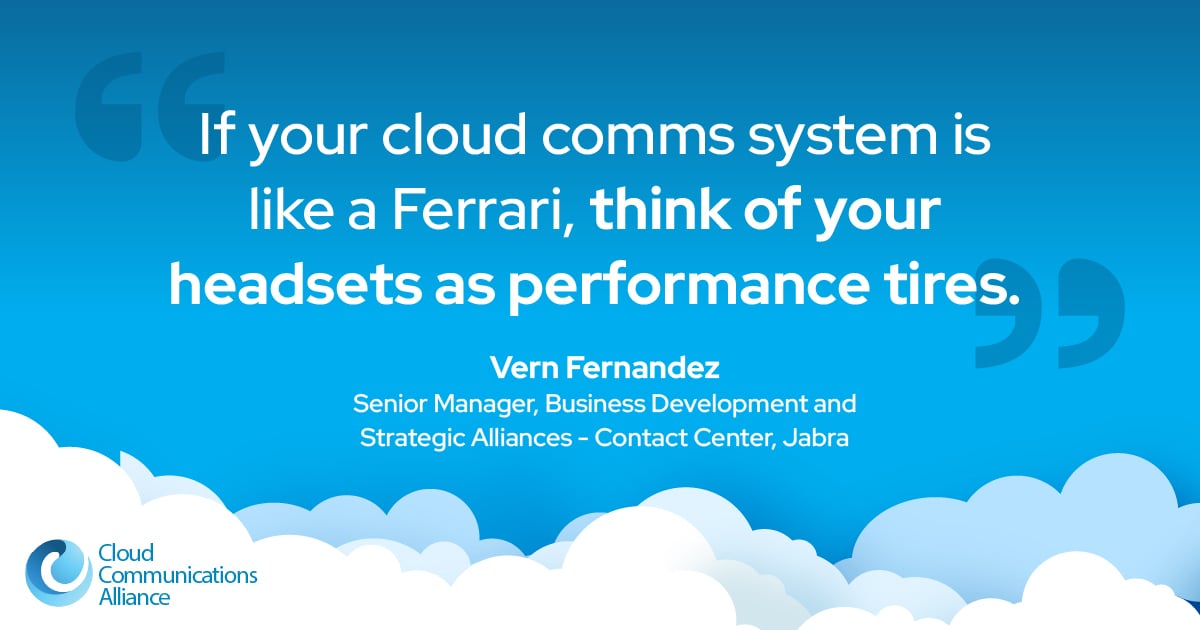Why Cloud Communications Providers Need New, Innovative Channel Programs

By: Alan Rihm, CEO, CoreDial
The past two years have been interesting to say the least, but in the cloud communications industry, there have been a number of silver linings. One has been seeing just how viable remote-work solutions can be long term, and another is how important the role the channel partner plays with business customers in good times and bad.
At the onset of the pandemic, businesses shifted and embraced UCaaS and video solutions out of necessity, then realized the material benefits they brought to the table. Now organizations of all sizes are looking at how they can meaningfully integrate these products on a long-term or permanent basis. This has presented a huge opportunity to channel partners offering cloud communications, and partners large and small alike are (as they should be) looking for a way to capitalize.
But as new partners enter the space, a growing number are realizing they don’t want to deal with the back-end requirements of the job, such as billing, taxation, accounting, and collections. After all, in a high-speed industry such as cloud communications, keeping up with the latest features, functionalities, and services is a full-time job on its own – one that comes on top of the administrative work that goes into running a business.
Beyond that, the increasingly archaic “pay to play'' agent model that is still pervasive in the cloud communications and channel space is becoming problematic. Cloud providers are being asked to pay many months of recurring revenues as a one-time incentive plus a significant amount of the ongoing monthly fees. This is convenient – right up until it won’t be. Channel partners (particularly those who lack the resources to take on the administrative parts of the workload) need more sustainable models if they’re going to find long-term success in cloud communications.
We can do better. Instead of relying on the existing channel models and the barriers that come with them, we should be focused on developing creative and innovative programs that are inclusive, simple, and margin-rich – without forcing administrative responsibilities onto those who don’t want them. New channel programs have the potential to build long-lasting, mutually beneficial, and highly profitable relationships with channel partners. We just need to understand what those partners are looking for in a technology vendor.
So, what type of channel programs should hungry, goal-oriented, but resource-constrained partners look for? A few suggestions might include:
No administrative hurdles:
Partners should work with technology vendors that have viable software and administrative options available for those that are happy selling, delivering, and managing the technology but want nothing to do with back-end finance and regulatory work. These support functions may include any combination of taxation, billing, and collections, along with other services that empower partners to roll up their sleeves and start selling.
End-to-end solutions:
None of our businesses look the way they did two years ago. Businesses have spent the last 18 months finding new solutions to the challenges presented by remote work, in some cases landing on vastly different arrangements to suit their needs. And as they plan on how to permanently replace, supplement, or enhance their offices as we head “back to normal,” the specific solutions businesses need could drastically vary. Channel partners entering the space need a comprehensive suite of video, unified communications, and contact center offerings, all deployable in a range of configurations – and the flexibility to be able to sell these products based on customer needs.
Flexible branding:
For some partners, delivering comprehensive communications services under their current brand is essential. Some may have equity in their brands, and any changes can potentially harm customer loyalty and future revenue. These partners almost always want private-label services that can be branded with their own company information. For other providers, however, branding isn’t a concern. If leveraging the technology vendor’s brand will help close a deal, that’s perfectly fine. Partners should look for vendors that are equally comfortable working in co-branded and private-label environments and eagerly provide extensive opportunities and advantages across both options. That means having access to the full range of marketing and sales support materials in both private-label and co-branded formats. Branding is a critical component in every go-to-market strategy, and channel partners would be well served to work with vendors that have an identical mindset.
For years, small channel providers have been expected to play by the rules of larger vendors and take on the burdens of managing complex back-office requirements or enter into costly, inconvenient “pay to play” agent programs. But the landscape has changed and continues to evolve at an exciting and rapid pace. Savvy technology vendors are now recognizing the value channel partners bring to the sector. Every month, new, reimagined channel programs that are much better aligned with small partners’ needs and challenges are being introduced to the market.
Channel partners should closely examine these new programs to find the best fit possible in terms of administrative outsourcing, services portfolio, and branding flexibility. While it still may not be easy, there shouldn’t be any constraints for talented partners to make money and build thriving, modern, and future-proofed businesses.
About The Author
Alan Rihm’s 24-plus years of entrepreneurship, successful business strategy, and channel experience has positioned him as a respected cloud communications leader. As CEO and founder of CoreDial, a leading provider of high-quality and scalable cloud communications, contact center, and video collaboration to more than 35,000 businesses, Rihm has infused the company’s vision and strategy and built a winning team and culture — resulting in tremendous revenue growth and exceptional Partner retention.


